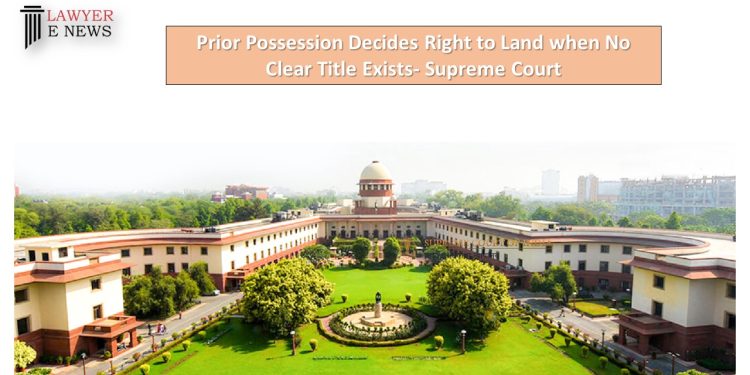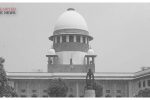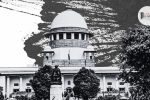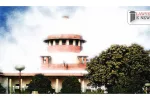Prior Possession Decides Right to Land when No Clear Title Exists- Supreme Court

On 29 March 2023, Supreme Court in a recent reportable judgement, Shivshankara & Anr. Vs. H.P. Vedavyasa Char, held when neither party had a clear title, prior possession alone could decide the right to possession of land against all others except the rightful owner. The Court referred to the legal maxim “Possessio contra omnes valet praeter eur cui ius sit possessionis” (he that hath possession hath right against all but him that hath the very right).
Facts
The appellants (original defendant Nos. 1 and 2) in O.S. No. 6456 of 1993) filed an appeal under Article 136 of the Constitution of India, challenging the judgment and decree dated 09.09.2010 passed by the Hon’ble High Court of Karnataka at Bengaluru in RFA No.1966 of 2007. They are the sons of the third defendant in the suit, who died during its pendency.
The respondent was the plaintiff in the suit, seeking a permanent injunction restraining the first and second defendants from interfering with the plaintiff’s right, title, and interest over the suit schedule property.
The appellants filed a written statement contending that the suit was not maintainable, among other reasons. The plaintiff/respondent amended the plaint and the defendants did not challenge the amendment or file additional written statements.
The Trial Court framed issues based on the pleadings and ruled in favor of the plaintiff/respondent, granting possession of the ‘B’ schedule property and a perpetual injunction for the ‘C’ schedule property.
The original defendants appealed the Trial Court’s judgment, and during the appeal, the second appellant died, and his legal heirs were impleaded as additional appellants.
The High Court allowed the appellants to produce additional evidence and remanded the matter to the Trial Court for fresh disposal. The plaintiff/respondent challenged the High Court’s decision in the Supreme Court, which upheld that appellants were allowed to produce addition evidence after that remanded the matter to the High Court for fresh disposal of the appeal. After that the appeal was dismissed.
Observed and Held
The Supreme Court observed that in dealing with requests for amendment of pleadings, courts should avoid a hyper-technical approach. However, amendments should not be granted merely upon request, particularly at the appellate stage, and should only be allowed in rarest of rare circumstances. In this case, the Trial Court allowed the amendment of the plaint, and the defendants were given multiple opportunities to file an additional written statement, which they did not avail.
The Supreme Court observed that the delay in seeking amendments to the written statement and raising additional grounds in the appeal could not be the sole reason for rejecting the requests. However, the High Court considered several factors, including the defendants’ failure to disclose their defense or claim possession of the property, and the complications that would arise from allowing amendments. The Court found no reason to interfere with the High Court’s decision to deny permission to amend the written statement.
The Court also considered the doctrine of lis pendens, which states that a transfer of property rights during the pendency of a suit is not valid if it adversely affects the interests of the other party in the property. The High Court declined to act upon the sale deed in light of this doctrine. The Supreme Court agreed, holding that the High Court was justified in rejecting the amendment request, as it would have necessitated framing fresh issues and treating the case as a de novo trial.
The Supreme Court observed that there was no reason to find any perversity or illegality in the rejection of the prayer for amendment.
The Supreme Court noted that the courts below reached concurrent findings on the issues of the suit’s maintainability, whether the suit was bad for non-joinder of necessary parties, and whether the suit should have been held as abated against all the defendants for non-substitution of all the legal heirs on the death of the original third defendant.
The Court agreed with the High Court that the question of whether the suit is one under Section 6 of the Specific Relief Act was not open for consideration, as it had already been decided by the Supreme Court in CA No. 5201 of 2009 and had attained finality. The respondent’s case was based on prior possession and illegal dispossession, and they were not claiming ownership rights in the suit.
The Court further noted that the appellants’ contention that the suit was not maintainable because the respondent was only claiming possessory title and the original defendant was the lawful owner of the property was untenable. The defendants’ plea was based on the principle of “jus tertii,” which means the right of a third party, but this did not render the suit un-maintainable.
The Supreme Court observed that the High Court carefully considered the defendants’ pleadings and found that they did not disclose their defense in their written statement, nor did they claim to be in possession of the suit property. The Court agreed that in such circumstances, when neither party had a clear title, prior possession alone could decide the right to possession of land against all others except the rightful owner. The Court referred to the legal maxim “Possessio contra omnes valet praeter eur cui ius sit possessionis” (he that hath possession hath right against all but him that hath the very right).
Supreme Court held that the High Court was correct in affirming the maintainability of the suit in favor of the respondent.
The Supreme Court considered the appellants’ contentions regarding the suit being bad for non-joinder of necessary parties and abatement against all defendants due to non-substitution of all legal representatives of the deceased third defendant. The Court noted that the first and second appellants (original defendants No.1 and 2), who were sons of the deceased third defendant, fully and substantially represented the joint interest and contested the suit. The Court applied the same reasoning in cases where the defendants jointly defended their interest with the deceased defendant and held that the suit should not stand abated due to non-substitution of all other legal representatives.
The Supreme Court observed that the original defendants failed to raise sufficient and appropriate pleadings in their written statement regarding their right to possess the suit properties. The Court held that no amount of proof offered without appropriate pleadings would be relevant, and agreed with the lower courts’ reliance on the evidence of PW-5 to establish the forceful dispossession of the defendants from the ‘B’ schedule property.
After examining the case, the Court found no perversity or patent illegality in the impugned judgment that would warrant interference under Article 136 of the Constitution of India. The Court noted that both the Trial Court and the High Court reached their conclusions after carefully considering the evidence on record, and therefore, their concurrent findings did not call for any interference.
Taking into account that the suit was based on prior possession and illegal dispossession, the Court found no reason to place Exhibit D-2 sale deed as grounds for displacing the concurrent findings of the courts below. Consequently, the Supreme Court dismissed the appeal.
Shivshankara & Anr. Vs. H.P. Vedavyasa Char






